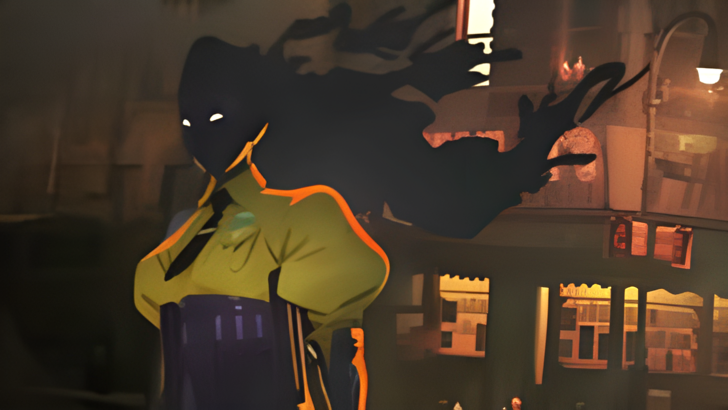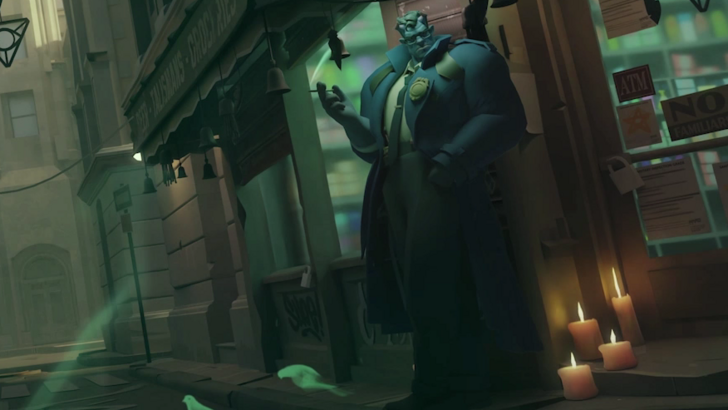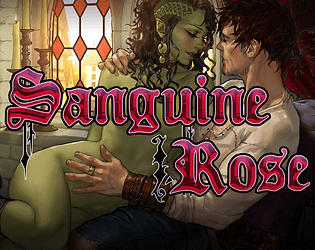 Valve's mysterious new shooter, Deadlock, finally has a Steam page. This article explores the recent revelations, including beta statistics, gameplay details, and the controversial approach Valve is taking to its own store guidelines.
Valve's mysterious new shooter, Deadlock, finally has a Steam page. This article explores the recent revelations, including beta statistics, gameplay details, and the controversial approach Valve is taking to its own store guidelines.
Valve's Deadlock: Emerging from the Shadows
Deadlock Officially Launches on Steam
 After a period of intense speculation fueled by leaks, Valve has officially unveiled Deadlock, its highly anticipated MOBA shooter. The Steam page launch follows a closed beta that reached a peak of 89,203 concurrent players, a significant increase from the previous high of 44,512 on August 18th. Valve has also lifted the previously strict confidentiality surrounding the game, allowing streaming, community discussions, and general public conversation. However, it remains invite-only and in early access, with placeholder art and experimental features.
After a period of intense speculation fueled by leaks, Valve has officially unveiled Deadlock, its highly anticipated MOBA shooter. The Steam page launch follows a closed beta that reached a peak of 89,203 concurrent players, a significant increase from the previous high of 44,512 on August 18th. Valve has also lifted the previously strict confidentiality surrounding the game, allowing streaming, community discussions, and general public conversation. However, it remains invite-only and in early access, with placeholder art and experimental features.
Deadlock: A Unique MOBA/Shooter Hybrid
 Deadlock blends MOBA and shooter mechanics, creating a 6v6 experience akin to Overwatch, but with the added layer of managing NPC units across multiple lanes. This fast-paced gameplay requires players to balance direct combat with controlling their Trooper squads. Key features include frequent Trooper respawns, constant wave-based attacks, strategic ability use, and upgrades. Movement options like sliding, dashing, and zip-lining add to the dynamic combat. The game boasts a roster of 20 unique heroes, encouraging diverse team compositions and strategic play.
Deadlock blends MOBA and shooter mechanics, creating a 6v6 experience akin to Overwatch, but with the added layer of managing NPC units across multiple lanes. This fast-paced gameplay requires players to balance direct combat with controlling their Trooper squads. Key features include frequent Trooper respawns, constant wave-based attacks, strategic ability use, and upgrades. Movement options like sliding, dashing, and zip-lining add to the dynamic combat. The game boasts a roster of 20 unique heroes, encouraging diverse team compositions and strategic play.
Valve's Steam Store Standards Controversy
 Interestingly, Deadlock's Steam page deviates from Valve's own store guidelines. While the platform typically requires at least five screenshots, Deadlock currently only features a single teaser video. This inconsistency has drawn criticism, with some arguing that Valve, as a Steamworks partner, should uphold the same standards it sets for other developers. This situation echoes a similar controversy surrounding a 2024 sale of The Orange Box. 3DGlyptics, developer of B.C. Piezophile, has voiced concerns about Valve undermining Steam's platform consistency. However, Valve's dual role as developer and platform owner complicates the application of traditional enforcement. The future handling of this discrepancy remains to be seen.
Interestingly, Deadlock's Steam page deviates from Valve's own store guidelines. While the platform typically requires at least five screenshots, Deadlock currently only features a single teaser video. This inconsistency has drawn criticism, with some arguing that Valve, as a Steamworks partner, should uphold the same standards it sets for other developers. This situation echoes a similar controversy surrounding a 2024 sale of The Orange Box. 3DGlyptics, developer of B.C. Piezophile, has voiced concerns about Valve undermining Steam's platform consistency. However, Valve's dual role as developer and platform owner complicates the application of traditional enforcement. The future handling of this discrepancy remains to be seen.















